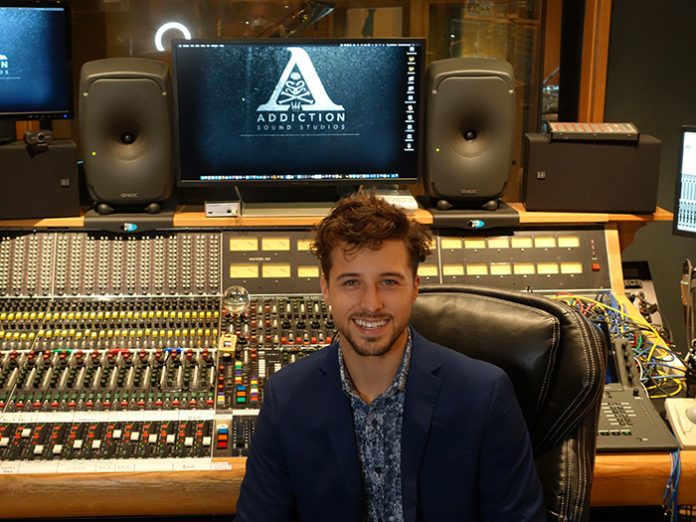Genelec congratulates the recipient of the second Dr. Ilpo Martikainen Audio Visionary Scholarship – a grant that was established in 2018 in honor of Genelec’s late founder Dr. Ilpo Martikainen. Braden Carei, a graduate student at Nashville, Tennessee’s Belmont University, has been announced as the recipient for the 2020-2021 school year.
Dr. Ilpo Martikainen Audio Visionary Scholarship is awarded annually to U.S. graduate students in the field of audio engineering who are members of the Audio Engineering Society (AES). The scholarship, in the amount of $5000, is being offered in association with the Audio Engineering Society Educational Foundation to students who have a passion of advancing audio through innovation and technology development.
“I’m so thankful to receive the Ilpo Martikainen Audio Visionary Scholarship from Genelec,” stated Braden Carei. “To receive a scholarship that is in memory of such an influential pioneer in audio technology is an honor that many people would dream of. For this upcoming year, this scholarship will give me the opportunity to focus on my final year of education in the field of audio, which will prepare me for my entrance into the professional audio world, where hopefully I can live up to the name of the scholarship and help to advance the field of audio, just as Ilpo Martikainen did with his time in the field.”
Braden is in his second year of Belmont’s Masters of Audio Engineering program. As an undergrad at Belmont, where he studied both audio engineering and computer science, Braden worked closely under the direction of advisor Dr. Eric Tarr, and a key project was the development of a cochlear implant and hearing-aid simulator that runs in real time in a digital audio workstation.
The project was later reconstructed as an iOS application, and Braden and Eric presented this project at IHCON and the Midwest Conference on Cochlear Implants. Braden also worked with Dr. Scott Hawley to run an audio classification neural network on the web, and the website was then able to classify audio samples based on previous training. In his first year of graduate research, Eric ran a study to find whether or not germanium transistors have a perceptual sonic difference when compared to a silicon transistor.
He noted:“Utilizing guitar pedals with these transistors, it was found that the there was a perceptual difference at low distortion levels and that there was no preference difference between the tones of the circuits.” Outside of Belmont, Braden has worked as part of the team at a high-profile audio electronics repair shop, working on projects sent in from prominent Nashville studios. “This opportunity helped me to understand signal flow through devices on a much deeper level,” he noted.
Most recently, Braden was given the opportunity to work alongside Dr. Tarr on a project funded by video game developer Epic Games (a Genelec customer, coincidentally), developing tutorials for the Unreal Engine gaming architecture protocol. The tutorials will focus on video game audio and audio processing within the engine.
As far as future plans, he is aiming toward the position of Audio Digital Signal Processing Engineer. “My degrees in both computer science and audio engineering will help me in this field. I would like to help an organization make sure that the most recent deployments of software are running as efficiently as possible.”
Lisa Kaufmann, Genelec Inc. Managing Director, stated “I know that Ilpo would be very impressed with Braden as a young audio professional, especially his quest for knowledge, the value he places in audio innovation, and his overall enthusiasm. Ilpo would be proud to see Braden receive a scholarship in his name. We at Genelec look forward to Braden’s future successes!”
Dr. Martikainen was involved for many years in the Audio Engineering Society, including being presented with the AES Fellowship Award for significant contributions in the field of loudspeaker development in 1993, and in 2015 delivering the Richard C. Heyser Memorial Lecture at the 138th AES International Convention in Warsaw, Poland. Ilpo chose a topic near and dear to his heart, with the presentation titled “Monitoring Loudspeakers: Can They Be Truthful Quality Control Tools?,” examining the past, present and future role of the professional monitoring system. He created several articles related to loudspeaker design, some of them published in the early 1980’s appearing in AES publications. He was also the inventor of several granted and pending patents, and was involved in numerous speaker designs, while also continuing to work on new transducer technologies.





